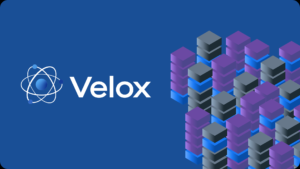

Momentum is building around Velox, a new C++ acceleration library that can deliver a 2x to 8x speedup for computational engines like Presto, Spark, and PyTorch, and likely others in the future. The open source technology was originally developed by Meta, which today submitted a paper on Velox to the International Conference on Very Large Data Bases (VLDB) taking place in Australia.
Meta developed Velox to standardize the computational engines that underly some of its data management systems. Instead of developing new engines for each new transaction processing, OLAP, stream processing, or machine learning endeavor–which require extensive resources to maintain, evolve, and optimize–Velox can cut through that complexity by providing a single system, which simplifies maintenance and provides a more consistent experience to data uses, Meta says.
“Velox provides reusable, extensible, high-performance, and dialect-agnostic data processing components for building execution engines, and enhancing data management systems,” Facebook engineer Pedro Pedreira, the principal behind Velox, wrote in the introduction for the Velox paper submitted today at the VLDB conference. “The library heavily relies on vectorization and adaptivity, and is designed from the ground up to support efficient computation over complex data types due to their ubiquity in modern workloads.”
Based on its own success with Velox, Meta brought other companies, including Ahana, Voltron Data, and ByteDance, to assist with the software’s development. Intel is also involved, as Velox is designed to run on X86 systems.
The hope is that, as more data companies and professionals learn about Velox and join the community, that Velox will eventually become a regular component in the big data stack, says Ahana CEO Stephen Mih.
“Velox is a major way to improve your efficiency and your performance,” Mih says. “There will be more compute engines that start using it….We’re looking to draw more database developers to this product. The more we can improve this, the more it lifts the whole industry.”
Mih shared some TPC-H benchmark figures that show the type of performance boost users can expect from Velox. When Velox replaced a Java library for specific queries, the wall clock time was reduced anywhere from 2x to 8x, while the CPU time dropped between 2x and 6x.
They key advantage that Velox brings is vectorized code execution, which is the ability to process more pieces of code in parallel. Java does not support vectorization, whereas C++ does, which makes many Java-based products potential candidates for Velox.
Mih compared Velox to what Databricks has done with Photon, which is a C++ optimization layer developed to speed Spark SQL processing. However, unlike Photon, Velox is open source, which he says will boost adoption.
“Usually, you don’t get this type of technology in open source, and it’s never been reusable,” Mih tells Datanami. “So this can be composed behind database management systems that have to rebuild this all the time.”
Over time, Velox could be adapted to run with more data computation engines, which will not only improve performance and usability, but lower maintenance costs, writes Pedreira and two other Facebook engineers, Masha Basmanova and Orri Erling, in a blog post today.
“Velox unifies the common data-intensive components of data computation engines while still being extensible and adaptable to different computation engines,” the authors write. “It democratizes optimizations that were previously implemented only in individual engines, providing a framework in which consistent semantics can be implemented. This reduces work duplication, promotes reusability, and improves overall efficiency and consistency.”
Velox uses Apache Arrow, the in-memory columnar data format designed to enhance and speed up the sharing of data among different execution engines. Wes McKinney, the CTO and co-founder of Voltron Data and the creator of Apache Arrow, is also committed to working with Meta and the Velox and Arrow communities.
“Velox is a C++ vectorized database acceleration library providing optimized columnar processing, decoupling SQL or data frame front end, query optimizer, or storage backend,” McKinney wrote in a blog post today. “Velox has been designed to integrate with Arrow-based systems. “Through our collaboration, we intend to improve interoperability while refining the overall developer experience and usability, particularly support for Python development.”
These are still early days for Velox, and it’s likely that more vendors and professionals will join the group. Governance and transparency are important aspects to any open source project, according to Mih. While Velox is licensed with an Apache 2.0 license, it has not yet selected an open source foundation to oversee its work, Mih says.
Related Items:
Ahana Launches ‘Forever Free’ Presto Service, Series A Top-Off
Databricks Scores ACM SIGMOD Awards for Spark and Photon
Voltron Data Takes Flight to Unify Arrow Community
Editor’s note: This article has been corrected. Wes McKinney is the CTO and co-founder of Voltron Data, not the CEO. Datanami regrets the error.
July 11, 2025
- NVIDIA: AI-Powered Climate Models Go Mainstream
- RealSense Completes Spinout from Intel, Raises $50M to Accelerate AI-Powered Vision
- Emory University: Exploring the Frontiers of Data Science, Across Space and Time
- Anaconda Announces Partnership with Prefix.dev to Bring Next-Gen Functionality to conda-build
- Amplitude Acquires Kraftful to Accelerate AI Strategy
- Astronomer and AWS Announce Strategic Collaboration Agreement
July 10, 2025
- Gloo Releases Flourishing AI Benchmark to Evaluate LLM Impact on Human Well-Being
- Teradata Possible 2025: Experience the Trusted AI and Data Conference
- Cognizant Introduces Agent Foundry: Powering Agentic AI at Enterprise Scale
- Accenture and Microsoft Expand Collaboration on Gen-AI Powered Cyber Solutions
- Gartner Forecasts Worldwide End-User Spending on GenAI Models to Total $14.2B in 2025
- Hydrolix Adds AWS Elemental Logs, Extending Insights from ‘Origin to Edge’ for AWS Media Services
July 9, 2025
- Cerebras Launches Cerebras Inference Cloud Availability in AWS Marketplace
- Alteryx and Evisions Expand Partnership to Elevate Data Analytics in Higher Education
- Google Cloud and Capgemini Help Imperial War Museums Unlock Archives with GenAI
- Alation Named a Leader in 2025 Data Governance Solutions Report
- CoreWeave Becomes 1st AI Cloud Provider to Offer NVIDIA RTX PRO 6000 Blackwell GPU at Scale
- AFT to Launch National Academy for AI Instruction with Microsoft, OpenAI, Anthropic and United Federation of Teachers
- Impulse AI Releases Whitepaper on Next-Gen AI System
- PingCAP Expands Collaboration with Microsoft Azure to Accelerate Distributed SQL Adoption
- Inside the Chargeback System That Made Harvard’s Storage Sustainable
- What Are Reasoning Models and Why You Should Care
- LinkedIn Introduces Northguard, Its Replacement for Kafka
- Databricks Takes Top Spot in Gartner DSML Platform Report
- Agentic AI Orchestration Layer Should be Independent, Dataiku CEO Says
- Iceberg Ahead! The Backbone of Modern Data Lakes
- Four Steps for Turning Data Clutter into Competitive Power: Your Sovereign AI and Data Blueprint
- Top-Down or Bottom-Up Data Model Design: Which is Best?
- Are Data Engineers Sleepwalking Towards AI Catastrophe?
- The Evolution of Time-Series Models: AI Leading a New Forecasting Era
- More Features…
- Mathematica Helps Crack Zodiac Killer’s Code
- Supabase’s $200M Raise Signals Big Ambitions
- Confluent Says ‘Au Revoir’ to Zookeeper with Launch of Confluent Platform 8.0
- Solidigm Celebrates World’s Largest SSD with ‘122 Day’
- ‘The Relational Model Always Wins,’ RelationalAI CEO Says
- Data Prep Still Dominates Data Scientists’ Time, Survey Finds
- With $17M in Funding, DataBahn Pushes AI Agents to Reinvent the Enterprise Data Pipeline
- AI Is Making Us Dumber, MIT Researchers Find
- Toloka Expands Data Labeling Service
- Databricks Is Making a Long-Term Play to Fix AI’s Biggest Constraint
- More News In Brief…
- Seagate Unveils IronWolf Pro 24TB Hard Drive for SMBs and Enterprises
- Gartner Predicts 40% of Generative AI Solutions Will Be Multimodal By 2027
- Databricks Unveils Databricks One: A New Way to Bring AI to Every Corner of the Business
- Campfire Raises $35 Million Series A Led by Accel to Build the Next-Generation AI-Driven ERP
- BigBear.ai And Palantir Announce Strategic Partnership
- Deloitte Survey Finds AI Use and Tech Investments Top Priorities for Private Companies in 2024
- Code.org, in Partnership with Amazon, Launches New AI Curriculum for Grades 8-12
- Gartner Predicts Over 40% of Agentic AI Projects Will Be Canceled by End of 2027
- NIH Highlights AI and Advanced Computing in New Data Science Strategic Plan
- Databricks Launches Agent Bricks: A New Approach to Building AI Agents
- More This Just In…




























